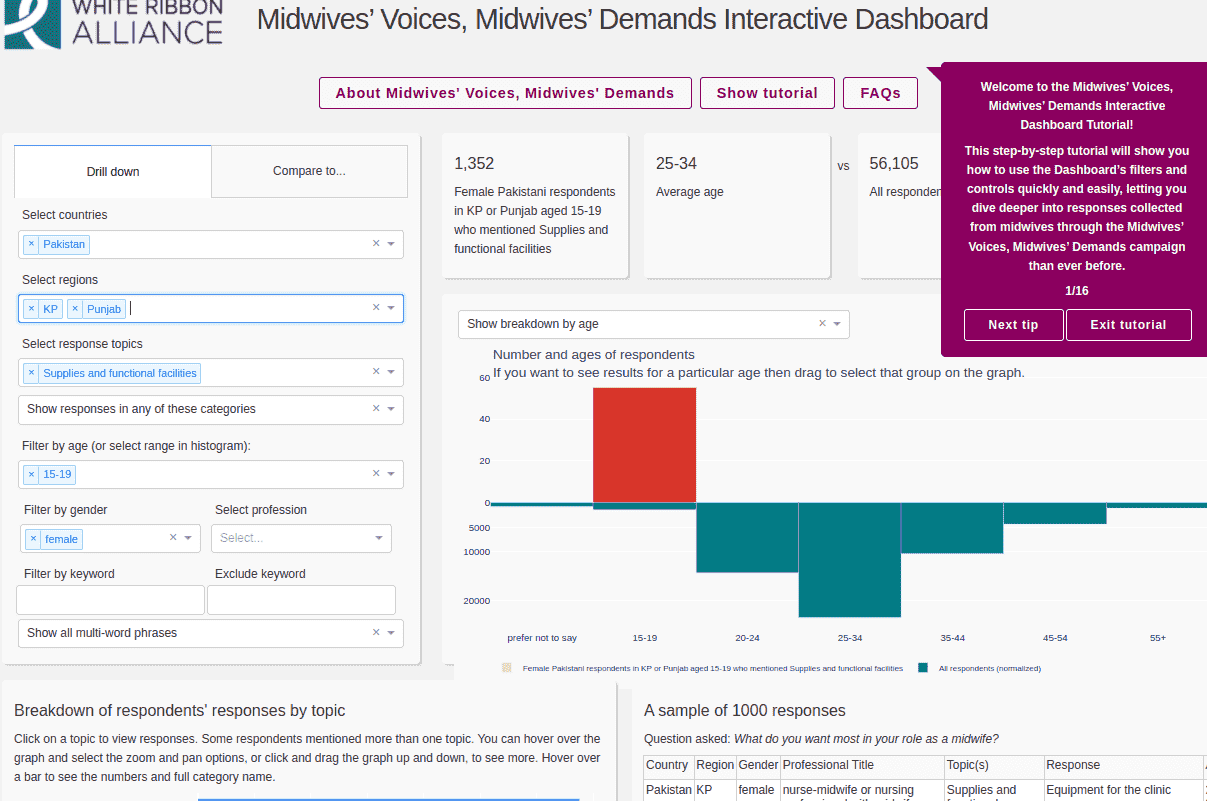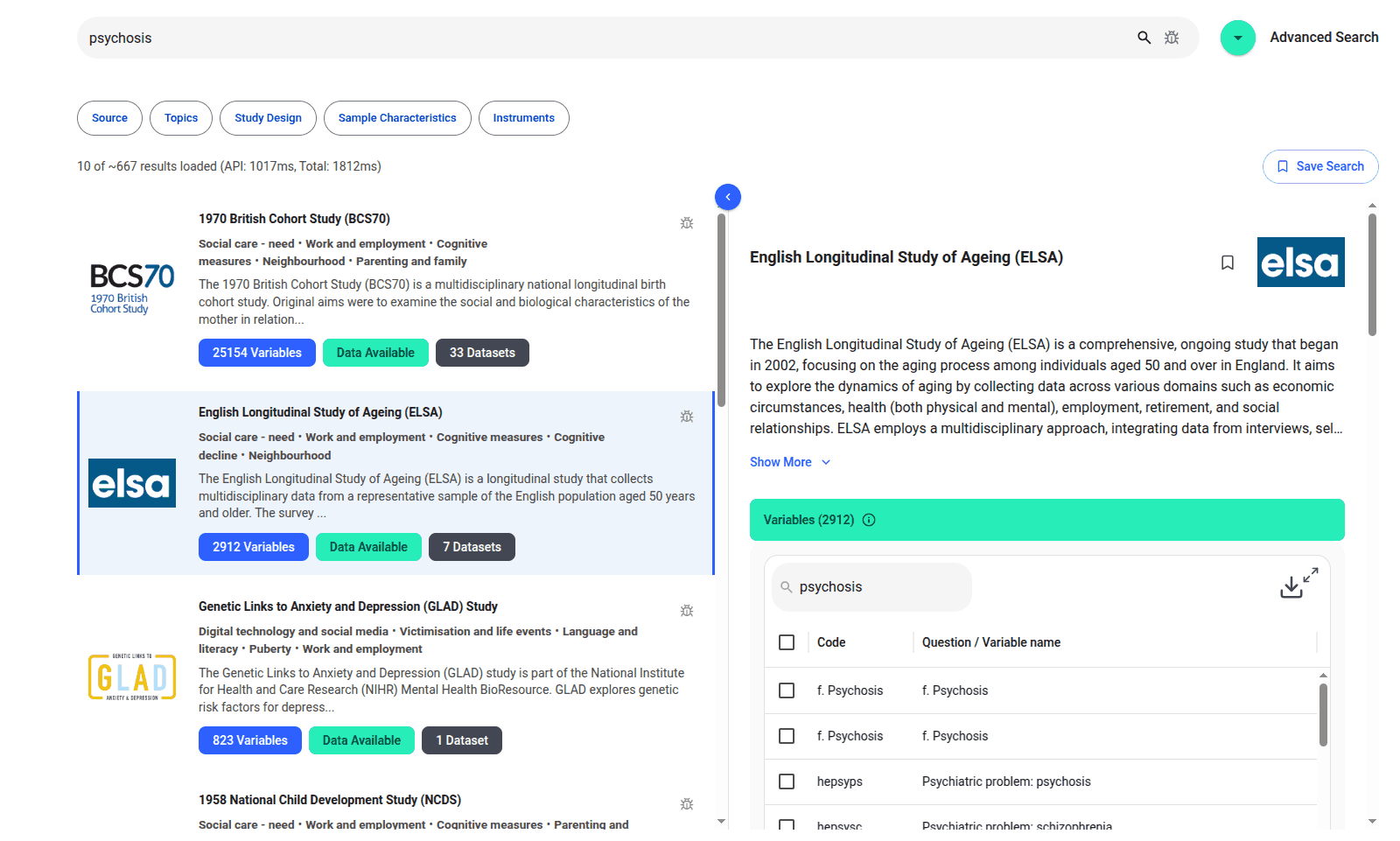
Today, Thursday 5 May, is being celebrated worldwide as the International Day of the Midwife, organised by the International Confederation of Midwives.
The White Ribbon Alliance ran a campaign called Midwives’ Voices, Midwives’ Demands, where they asked more than 56,000 midwives and health workers around the world about what they want and need to better serve women in their care and for themselves as midwives.
Fast Data Science - London
We have set up an interactive dashboard for White Ribbon Alliance which allows users to explore the respondents’ demands in free text, and visualise them into handy charts, word clouds, and a map view. The dashboard used natural language processing techniques such as supervised learning and text classifiers to categorise the responses into groups.

Screenshot of the Midwives’ Voices, Midwives’ Demands interactive NLP dashboard. Click here to explore the dashboard.
The White Ribbon Alliance has launched the dashboard today to celebrate the International Day of the Midwife, and are hoping to raise awareness of the need to improve the status of midwifery in healthcare systems today.
The Midwives’ Voices, Midwives’ Demands follows on from the groundbreaking What Women Want campaign, where White Ribbon Alliance collected 1.2 million responses from women around the world about their healthcare needs. You can explore the What Women Want campaign dashboard here.
If you would like an interactive NLP dashboard for your project, you can read more about what we can achieve here.
Ready to take the next step in your NLP journey? Connect with top employers seeking talent in natural language processing. Discover your dream job!
Find Your Dream Job
We are excited to introduce the new Harmony Meta platform, which we have developed over the past year. Harmony Meta connects many of the existing study catalogues and registers.

Guest post by Jay Dugad Artificial intelligence has become one of the most talked-about forces shaping modern healthcare. Machines detecting disease, systems predicting patient deterioration, and algorithms recommending personalised treatments all once sounded like science fiction but now sit inside hospitals, research labs, and GP practices across the world.

If you are developing an application that needs to interpret free-text medical notes, you might be interested in getting the best possible performance by using OpenAI, Gemini, Claude, or another large language model. But to do that, you would need to send sensitive data, such as personal healthcare data, into the third party LLM. Is this allowed?
What we can do for you